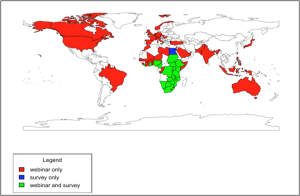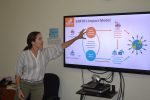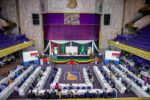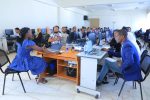Data Science and its Potential Impact on Research and Development Processes in Africa

By Stephen Obol Opiyo, PhD, Senior Data Scientist, Patira Data Science, Ohio, USA; and Kampala, Uganda
Africa on the Brink of a Data-Driven Revolution
Africa stands at the threshold of a new scientific era. For decades, research and development were constrained by weak infrastructure, fragmented data, and reliance on external expertise. Today, with a youthful population, expanding digital connectivity, and stronger academic networks, Africa is uniquely positioned to leverage data science and Generative AI (GenAI) to tackle its most pressing challenges of disease outbreaks, food insecurity, climate change, and antimicrobial resistance (AMR).
Recent initiatives underscore this potential. The Regional Universities Forum for Capacity Building in Agriculture (RUFORUM)1, in collaboration with Patira Data Science2, has trained over 1,000 participants in 40+ African countries (and partners beyond Africa) in data science and data management3–5 (Figure 1). Confidence in spatial data analysis (GIS) rose from <25% to >90%, while Artificial Intelligence (AI) knowledge quadrupled, demonstrating that structured training can rapidly build local capacity. At the same time, a regional survey of 33 universities across 19 countries revealed high engagement from faculty and students but significant gaps in infrastructure, curriculum, and institutional policy6.
Figure 1: Map of countries impacted by RUFORUM–Patira trainings and survey participation, including Africa and global partners.
These findings confirm that Africa has both the demand and the foundation to drive its own data revolution provided investments are made in infrastructure, curriculum, and institutional policy, and inclusive innovation hubs.
In addition to training and survey findings, global rankings underscore the urgency. While top African universities such as Makerere University (#1 Uganda, #1122 globally), University of Ibadan (#1 Nigeria, #1063), University of Nairobi (#1 Kenya, #1371), and University of Cape Town (#1 South Africa, #324) lead nationally, they remain globally uncompetitive in data science and bioinformatics7. The 2024 Global Innovation Index places Uganda at #121 and South Africa at #69, further highlighting the need for investment in research, innovation, and digital infrastructure8.
Laying the Groundwork: Early Signals of Promise
Practical deployments of data science and GenAI are already demonstrating feasibility and relevance:
- Digital Green’s Farmer. CHAT, developed with Microsoft AI4Good and Gooey.AI delivers multilingual, gender-inclusive, climate-smart advisory services via WhatsApp9
- PlantVillage Nuru , led by Penn State University, applies GenAI to simulate climate stress and recommend nutrient-dense, resilient crops, integrating pest, soil, and weather data10.
- Viamo 321, in partnership with Airtel uses voice response to provide on-demand agricultural, nutrition, and health information, co-developed with the African Cassava Agronomy Initiative11.
These projects show that data science and GenAI can be deployed in low-resource settings in ways that are socially inclusive, technically viable, and responsive to local realities. Each, however, remains limited in scope focusing on single domains (agriculture or health) or narrow delivery modes.
From Agriculture to Preventive Public Health
Data science and GenAI platforms embedded in rural advisory networks can expand into healthcare by combining conversational interfaces, predictive analytics, and multimodal data. Such systems could forecast nutrition-related disease risks, deliver preventive advice via chatbots, and link rural households with nutritionists and healthcare providers through telemedicine. When designed with gender-responsive data, cultural practices, and nutrition-sensitive approaches, these platforms can simultaneously boost agricultural productivity and strengthen community health in inclusive and locally relevant ways.
Africa-Led Innovation: The Role of Centers of Excellence
The future of Africa’s data revolution must be African-owned and African-led. Innovation must come from within universities, SMEs, and governments, while global partners provide complementary technical and financial support.
A key part of this solution lies in Regional Centers of Excellence that combine:
Curricula: Embedding data science and GenAI into MSc/PhD training and professional programs.
Infrastructure: Providing access to High Performance Computing (HPC), cloud platforms, and Laboratory Information Management Systems (LIMS).
Hubs for innovation: Supporting SMEs, startups, and faculty research with real datasets and applied AI tools.
Collaborative governance: Ensuring shared ownership across universities, governments, industry, and communities.
These centers will not function as isolated nodes but as interconnected hubs within RUFORUM’s network, ensuring equity and capacity across institutions. They represent Africa’s opportunity to move from being a consumer of external technologies to becoming a global leader in homegrown, culturally grounded innovation.
Conclusion: From Vision to Transformation
Africa’s path forward is clear: training over 1,000 participants across 40+ countries, backed by regional survey evidence, has built a strong foundation. Early initiatives like Farmer.CHAT, PlantVillage Nuru, and Viamo 321 show that African contexts can sustain inclusive, impactful AI systems. The next step is to scale these successes through regional innovation hubs and collaborative networks, embedding data science and GenAI in curricula and research ecosystems to shift Africa from a passive consumer to an active producer of solutions driving its own scientific, agricultural, health, and climate resilience futures12–14.
References
- RUFORUM: https://www.ruforum.org
- Patira Data Science: https://patiradatascience.com
- https://news.ruforum.org/general-introduction-to-data-management-data-science-and-bioinformatics-module/
- https://news.ruforum.org/online-webinar-data-management-for-research-and-institutional-decision-making/
- https://news.ruforum.org/webinar-data-science-for-research-and-institutional-intelligence/
- RUFORUM and Patira Data Science. (2025). Regional Survey on Institutional Capacity in Bioinformatics, Data Science, and Data Management [Unpublished report]. RUFORUM Secretariat.
- https://edurank.org/biology/bioinformatics/af/
- https://www.wipo.int/gii-ranking/en/rank
- Digital Green. Farmer.CHAT: https://www.digitalgreen.org
- Penn State University. (2024). PlantVillage Nuru: AI and GenAI for climate resilience. https://plantvillage.psu.edu
- (2024). Viamo 321 service: Interactive voice response for agriculture, health, and nutrition. https://viamo.io
- https://au.int/sites/default/files/documents/38507-doc-dts-english.pdf
- https://au.int/en/agenda2063/overview
- http://sdgs.un.org/2030agenda







